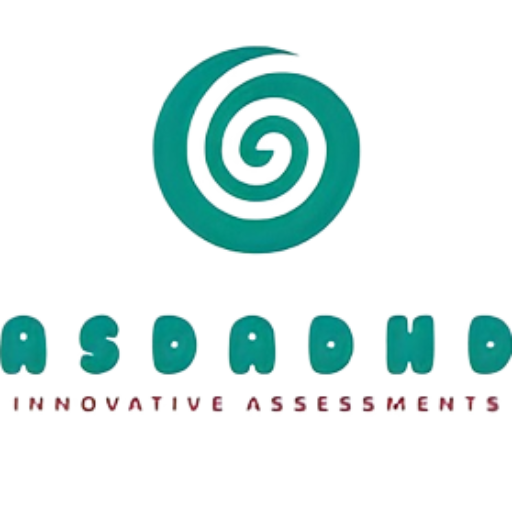Understanding Adult ADHD: Symptoms, Causes, and Treatments
What Is Adult ADHD?
Adult ADHD, or Attention Deficit Hyperactivity Disorder, is a neurodevelopmental disorder that persists into adulthood for many individuals. This condition involves difficulties with attention, impulsivity, and hyperactivity. Around 4% to 5% of U.S. adults live with ADHD. Although it originates in childhood, many adults continue to experience significant symptoms that impact various aspects of their lives.
Symptoms of Adult ADHD
Symptoms of ADHD in adults can vary widely and change over time. Common symptoms include:
- Inattention: Difficulty concentrating, following directions, and organizing tasks.
- Impulsivity: Acting without thinking, interrupting others, and making hasty decisions.
- Hyperactivity: Restlessness, excessive talking, and difficulty remaining seated.
Other symptoms may involve chronic procrastination, mood swings, low self-esteem, anxiety, depression, and substance abuse. The manifestation of symptoms can be unique to each person, with some able to focus well on engaging tasks while others struggle in all areas.
Complications Associated with Adult ADHD
Untreated ADHD can lead to various complications, affecting academic, professional, and personal lives. These include:
- Academic Issues: Poor grades, repeating grades, or getting into trouble at school.
- Workplace Challenges: Frequent job changes, poor job performance, and dissatisfaction with work.
- Legal and Financial Problems: Traffic violations, car accidents, financial mismanagement.
- Relationship Struggles: Unstable relationships, frequent separations or divorces, and multiple marriages.
Types of Adult ADHD
- Inattentive Type: Marked by problems with attention, organization, and following instructions.
- Hyperactive/Impulsive Type: Characterized by restlessness, hyperactivity, and impulsive behavior.
- Combined Type: A mix of inattentive and hyperactive/impulsive symptoms, and the most common form.
Causes and Risk Factors
The precise cause of ADHD remains unknown, but genetics plays a significant role. ADHD tends to run in families. Other potential risk factors include:
- Prenatal Exposure: Alcohol, tobacco, or drug use during pregnancy.
- Environmental Toxins: Exposure to substances like lead.
- Premature Birth: Being born prematurely or with a low birth weight.
- Brain Injuries: History of traumatic brain injury.
Diagnosing Adult ADHD
Diagnosing ADHD in adults involves a comprehensive evaluation. This may include:
- Medical History: Reviewing past and current symptoms and family history.
- Physical Exam: To rule out other conditions.
- Psychological Testing: Assessing attention span, impulse control, and mental health.
- Input from Others: Gathering insights from family, friends, or teachers about past behaviors.
Treatment Options for Adult ADHD
Effective treatment of ADHD usually involves a combination of medication, therapy, and lifestyle adjustments.
Medications:
- Stimulants: Such as Adderall, Ritalin, and Vyvanse, which help improve attention and control impulsive behaviors.
- Non-stimulants: Such as Strattera and Intuniv, which may be used alone or alongside stimulants.
Therapies:
- Cognitive Behavioral Therapy (CBT): To improve self-esteem and develop coping strategies.
- Life Coaching: To help with goal setting and organization.
- Family Therapy: To educate and support loved ones.
Lifestyle Strategies:
- Regular exercise and a balanced diet
- Mindfulness meditation and relaxation techniques
- Organizational tools like planners and reminder apps
FAQs About Adult ADHD
- Q: Can adults develop ADHD later in life?
- A: ADHD is typically present from childhood, though it may not be diagnosed until adulthood.
- Q: Is there a cure for ADHD?
- A: While there is no cure, symptoms can be managed effectively with treatment.
- Q: Are there natural treatments for ADHD?
- A: Some natural treatments, like mindfulness and dietary changes, may help, but they should be discussed with a doctor.
- Q: Can ADHD medication be addictive?
- A: Stimulant medications can be addictive if misused, so they should be taken as prescribed.
- Q: How can I support a loved one with ADHD?
- A: Educate yourself about the condition, be patient, and encourage them to seek professional help.
Living with Adult ADHD
Managing ADHD involves developing strategies to deal with symptoms and leveraging support systems. Here are some tips:
- Stay Organized: Use planners, apps, and reminders to keep track of tasks.
- Create a Routine: Establishing a daily routine can help reduce distractions and improve productivity.
- Exercise Regularly: Physical activity can help reduce hyperactivity and improve focus.
- Seek Support: Joining support groups or seeking therapy can provide valuable coping strategies and emotional support.
Conclusion
Adult ADHD is a manageable condition with the right combination of treatment and lifestyle adjustments. By understanding the symptoms and seeking appropriate care, individuals with ADHD can lead fulfilling and productive lives. For personalized care and support, visit ADHDASDDoctor, where we specialize in helping adults with ADHD thrive.
For more information, reach out to ADHDASDDoctor, your partner in navigating life with ADHD.
